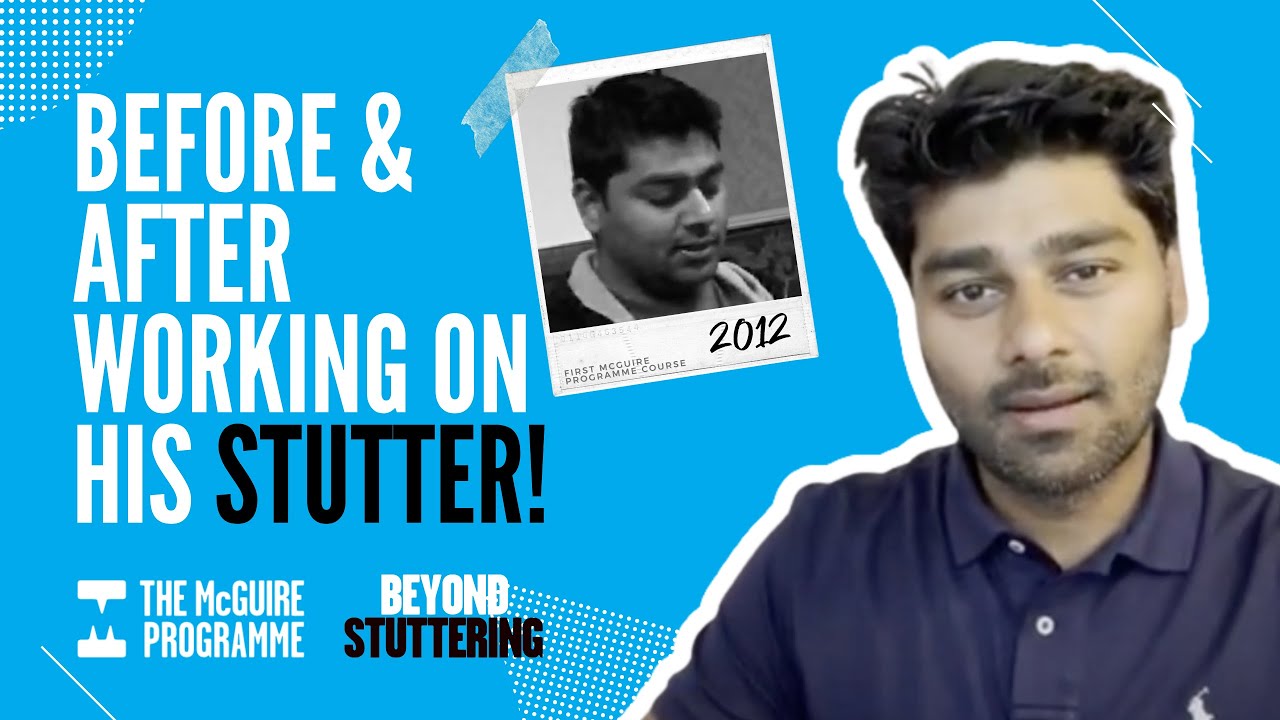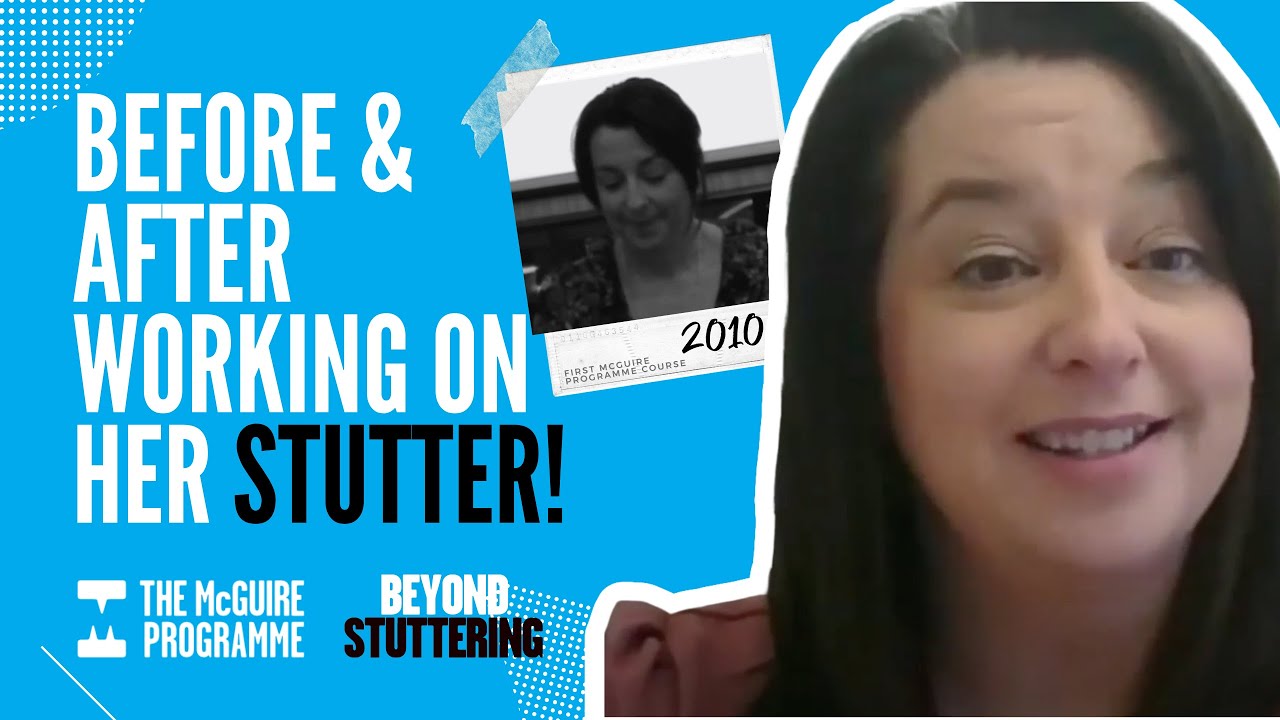Contact The McGuire Programme
We’d love to hear from you, let us know how we can help!
Interested in learning more about The McGuire Programme?
We would love to hear from you.
Stuttering & McGuire Programme FAQs
Your Stuttering Questions Answered.
No, there is no cure for stuttering, although many of our members reach the point where they have overcome their stutter; stuttering no longer is a consideration in their lives regardless of the situation.
For others, we offer a proven method of controlling stuttering so that they can embrace speaking situations they would have previously avoided.
Anyone who offers a CURE for stuttering or stammering should be avoided.
We are not qualified speech and language therapists and we do not provide speech therapy. We do not diagnose or treat stuttering.
More importantly, however, we consider our personal experience with stammering and our demonstrated commitment to assisting others to overcome their stutter or stammer over the long term as a significant qualification in its own right.
All our regional directors, staff trainers, course instructors, and coaches have all being through our programme and we know from our own personal experience of stuttering how each new potential member feels. We understand their anxiety, feelings, and emotions as we have all been there. What we offer is a support network for all our members who have been through an initial course where you learn a group of techniques that have helped us physically, mentally, and emotionally.
We are very similar to Lionel Logue from The Kings Speech Movie who was initially dismissed by the profession, we too are often dismissed by the professionals but over 95% of our members have had traditional speech therapy with little or no lasting results.
Yes. There are many scams on the internet so we encourage all potential applicants to do this initial research.
It is also very important to research how other stuttering programmes calculate their success rates, many only show success rates from those who respond to their questionnaire or on the final day of their courses as opposed to all those that attended a course or session
Contact the Regional Director in your region and he/she will provide you with phone numbers of members who are happy to share their experiences of stuttering and how they have overcome it.
You will also be welcome to attend our Open Days or Support Groups to ask questions, find out more about us, and to speak to some members in person.
When considering any treatment the key question is what ongoing coaching and support is available and at what cost? This aspect is one of the strengths of the McGuire Programme and a major point of difference to other stuttering programmes or indeed treatments.
Overcoming a stutter is a long-term process requiring constant coaching and support as provided by our programme.
Our approach is that you start with an intensive 3/4 day course where you are immersed in learning all our methodologies and techniques, practicing them all day long, dealing with the physical, psychological and emotional aspects of stuttering. This happens with other people who have been through this before, we all know what it’s like, and no fluent speaking person can ever understand the feelings we experienced.
We work on replacing old bad speaking and psychological habits with new good speaking and physiological habits.
Then you are not left alone, you become part of our incredible membership programme where you will be coached and mentored as much or as little as you want. You will become part of the world’s biggest support systems for people who want to overcome their stutter.
The McGuire Programme provides a great solution for many people who stutter throughout the world.
By ‘community’ the writer is most likely referring to stuttering associations like the BSA, NSA, ASW, etc. With some, like Norway and Denmark, our relationships are very good. With others, not so good. Mostly this is due to their philosophy of accepting oneself as a ‘stutterer’/’person who stutters’, conflicting with our philosophy of accepting ourselves as ‘people working very hard, even fighting, to overcome stuttering and become good speakers’.
Some McGuire Programme members are active beyond the Programme as volunteers in other stammering self-help organisations such as the BSA (aka stamma) (British Stammering Association), the NSA (National Stuttering Association), the Australian Stuttering Warriors and the ISA (International Stuttering Association).
Alongside these bodies, the McGuire Programme plays its part in promoting public and professional awareness of stammering.
We are always open to questions from any person who stutters and always want to let them know that there is an alternative to just accepting yourself as an out of control stutterer. Most inspirational people who stutter are those who have fought to overcome it such as Joe Biden, Emily Blunt and Bruce Willis to name a few.
Whilst we can not speak on behalf of individual SLP’s our experience to date has been as follows.
Some open-minded, if not brave, SLPs approve and value what we are doing to help those who stutter, (most likely) because they recognize the complexity and difficulty in achieving significant improvement with those who stutter that requires intervention from those who have experienced the trauma of stuttering and who have found a solution. They also recognise that overcoming stuttering requires more time and effort than an SLP is able to provide.
Other SLPs, probably most, believe that only ‘professionals’ who are degreed, trained, and licensed should be allowed to try to help people who stutter.
Others won’t accept a treatment approach that hasn’t been scientifically proven including peer-reviewed and published in a professional journal.
The vast majority of our members (upwards of 95%) have been through traditional speech therapy with little or no positive results.
The application form should be completed by yourself or, in the case of a minor, by a parent, guardian, or another responsible person.
If you choose to apply online, the first step is to go to the online application form. When you have filled in all the information we ask you to provide, click on the ‘Submit’ button and the security code directly below it. Your application will be sent to the Regional Director. You will receive a confirmation shortly afterward.
If you (or someone speaking on your behalf) prefer to contact the Regional Director, just click on contact us and you can submit your message on-line. You can also contact the Regional Director directly by e-mail, telephone or letter; you will find contact details on the website. An application form will be sent to you on request. This should be completed and returned to the Regional Director. You will receive a confirmation shortly afterward by whichever method you prefer (e-mail, telephone, or letter).
The Regional Director will provide dates for forthcoming intensive courses that still have places available for new students.
Many people who stammer – perhaps most – enter stammering therapy wishing to become fluent. After years of negative speaking experiences, this is understandable. However, it is a paradox that fluency, when pursued above all else, can be a self-defeating goal.
Much more productive is to start with assertive self-acceptance. Learning to accept ourselves fully in the role of people who stammer can be challenging, but it is the crucial first step in beyond stammering. Interestingly, by taking the focus away from fluency as a primary objective, fluency is often achieved as a by-product.
We aim for articulate eloquence because we want you to take pride in your role as a speaker. Many of our members have been described as “well spoken”. Indeed, many of our members are involved in public speaking organisations such as Toastmasters, Association of Speakers Clubs, and Rostrum.
McGuire Programme members regularly win public speaking awards.
Overcoming stuttering is a difficult process. That’s why we work on both the physical and psychological aspects of stuttering as well as practise the techniques in public. This is to give you the best possible initial start on your journey to overcome your stutter.
Sessions usually begin most mornings at 8:00 am and end at about 10:00 pm
Yes. We break for 10 minutes after every 50 minute session.
This is to ensure that the information given is retained. It also gives an opportunity to ‘freshen up’.
There are also extended breaks for breakfast, lunch and dinner.
A typical course has between 5 to 15 new students with about 20 to 40 returning members attending at any one time. In some regions the number of returning members will vary, if it’s a new region the numbers are smaller and with our more established courses the numbers can be 80 to 100.
Members return on the courses to help the new students and also to work on their own speech.
Much of the course time is spent in one to one coaching.
After members gain control over their own stutter many have a passion to help other people who stutter. They return to courses to assist in coaching roles and perhaps after appropriate training, they become involved in instructing on courses.
Other memebers leave the 4-day course 100% fluent and feel they are “cured”.
However, because they don’t practise the breathing and speaking technique or challenge their feared speaking situations, they may continue to have problems. Some of the members who do not put in enough time and effort on their speech after their initial course and take advantage of our incredible support network go back to old habits. However, they can then return to a 3 or 4-day intensive refresher course for only a small daily fee, refresh their technique, and get back on track.
The programme was established in 1994 and in that time several thousand have joined our programme worldwide.
For most of our members, the best support from our friends and family was their willingness to remind us to use the tools we learned and are practicing.
Some members openly tell family and friends what will help them the most, its best to ask what you can do to help.
For a lot of stutterers, they might have never talked about their stutter openly so by giving them an opening to talk about it and for them to know that you are there to help support them in whatever way they need will be a huge step. It’s up to the individual to take ownership of their new way of speaking and if you have difficulty understanding what is going on please ask them to explain. It’s OK that you don’t understand as you have never been in their shoes.
Prior to attending a course he/she may be apprehensive because they are afraid that it may not work, they may let other people down, they may not want anyone to know what they are doing etc – everybody is different and each person processes their feelings differently. It may be useful to ask them if they want to meet other members of the same age before the course. It may be useful to ask if they want to do this alone or with your support from the start. It depends on each person’s own journey but all you can is to be there to support them however they want it.
Once he attends the course, he’ll see that he is among people who like him, stutter, and who have all experienced the associated problems. The course presents challenging situations but all activities are optional. We don’t ask people to do anything we don’t believe they can do.
One of the keys to this programme’s success is that the need for change has to come from the individual concerned. So it’s up to your brother to make this decision to do something positive for himself.
If he has a compelling reason to improve his speech, this programme can be life-changing for him.
Some people who stutter are fine with their stutter and see no reason to change and that’s perfectly ok for them. Everybody is different.


